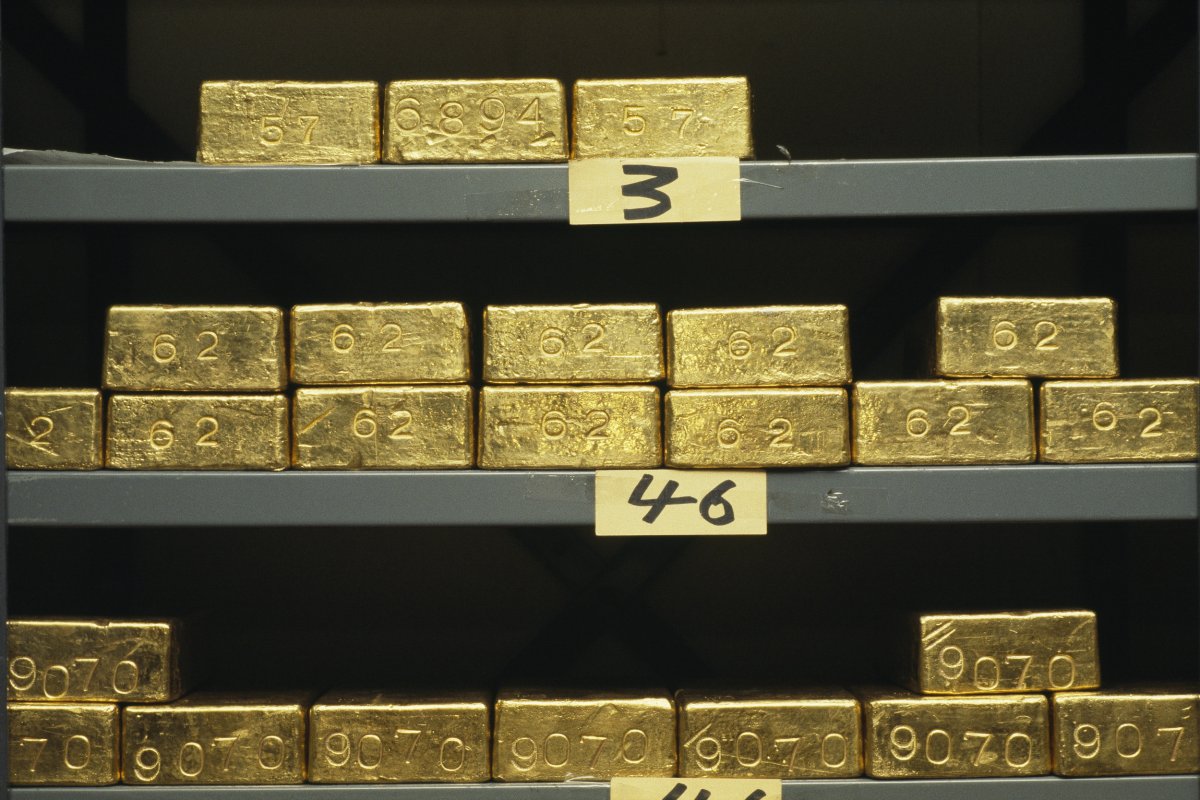Uncommon Knowledge
Newsweek is committed to challenging conventional wisdom and finding connections in the search for common ground.
As China’s economy slows, it is increasingly taking refuge in gold and helping to drive global demand to new heights.
Since the end of its draconian pandemic-era restrictions last January, the world’s second-largest economy has been menaced by challenges from a stagnant manufacturing sector to a high debt-to-GDP ratio to an ongoing property sector crunch.
Yet the People’s Bank of China, the country’s government-dominated central bank, was the single-largest purchaser of gold last year, according to a report released Wednesday by industry group the World Gold Council.
Global demand for the metal last year was down 5 percent from 2022 when excluding over-the-counter (OTC) market trading, the report said. However, taking OTC into account, this figure rises to 4,899 metric tonnes (5,400 tons), an annual record. The report noted that the average price of the commodity, US$1,940 per ounce, was also a record, exceeding that of 2022.

Central banks continued buying up gold at “a blistering rate,” per the report, securing 1,037t in 2023—the second highest on record after 2022. The People’s Bank of China boosted its reserves by 225t year-on-year, for a total of 2,235t of the commodity.
And a precipitous drop in European demand for gold bullion and coins (59 percent year-on-year) was tempered somewhat by the reverse trend in China, where demand was up 28 percent, or 280 metric tons. This resulted in the overall decline worldwide being 3 percent.
The Chinese demand for the metal also extended to jewelry, with the country’s 17 percent increase in demand overcoming a 9 percent drop in India, the fifth-largest economy.
“China was key to a lot of what was happening last year,” World Gold Council Senior Markets Analyst Louise Street told the Financial Times. “When you look at the consumer sector, China is not the price-setting factor, but it is providing a floor.”
Street pointed out that uncertainties in the geopolitical landscape, as well as economic anxieties, often drive the demand for gold, viewed as a more liquid, inflation-resistant asset.
She predicted the appeal of gold is likely to continue in the year ahead in light of “ongoing conflicts, trade tensions and over 60 elections taking place around the world.”
Chinese appetite comes as the country’s stock market continues to circle the drain, much to the chagrin of investors, having lost $6.3 trillion in the past three years alone.
Meanwhile, China’s yearslong real-estate market crisis reached a watershed moment Monday when a Hong Kong court ordered Evergrande, the world’s most indebted property developer, to liquidate its assets after it failed to reach a deal to restructure is debt.
Newsweek is committed to challenging conventional wisdom and finding connections in the search for common ground.
Newsweek is committed to challenging conventional wisdom and finding connections in the search for common ground.
[ad_2]
Source link